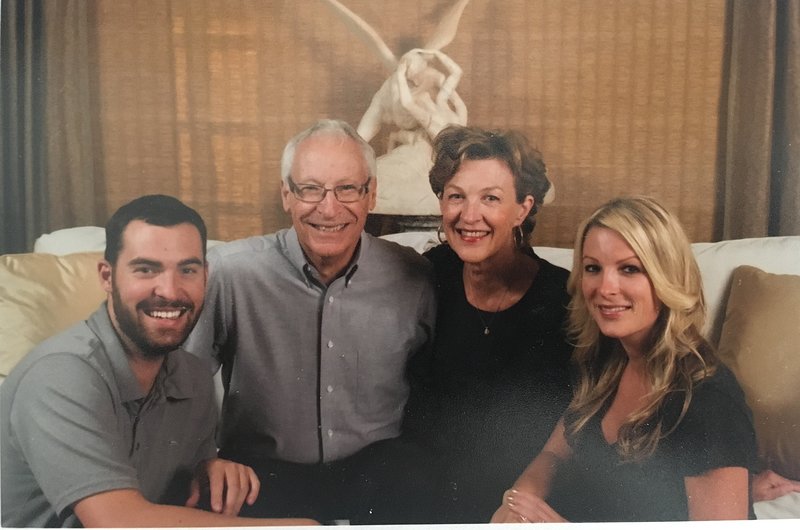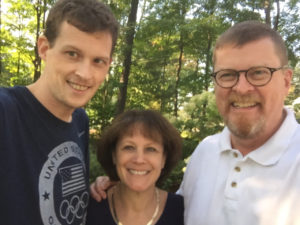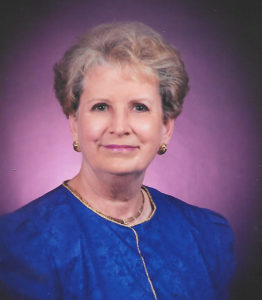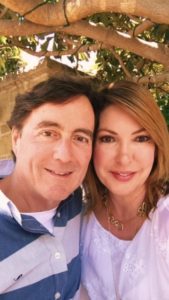The Bregante Family’s Matching Grant Campaign

The Bregante Family of San Diego, CA has generously offered to make a $5,000 donation to AXYS once the organization raises the same amount from its supporters. The Bregantes are particularly interested in improving knowledge about adult XXY individuals, and their contribution will be targeted to that part of our mission and goals.
Due to your generous donations, our goal was reached. Thank you!
Learn about the Bregante family and Ryan Bregante’s Mission to Build a Klinefelter Community here.
AXYS-KELLY FAMILY MATCHING GIFT FUNDRAISER
The Ruth Kelly Campaign

Eight years ago our son, Will, at the age of 23 was finally diagnosed as 47,XXY when he was in the process of joining the U.S. Air Force Reserves. It was the military doctors who picked up on his condition, after years of my husband, Dave, and I taking Will to countless doctors and specialists for diagnosis and treatment. None of these highly trained specialists ever suggested getting genetic testing or even suggested that Will might have a genetic condition.
While finally getting a diagnosis was a relief (although a disappointment to Will in that it prevented him from achieving his dream of joining the Air Force Reserves), our relief was short-lived after we realized the lack of knowledge and awareness in the medical community. Will’s endocrinologists at a well-respected global health care institution assured us for two years that testosterone treatment would solve everything and brushed off his health and behavior issues as not being related to 47,XXY. One endocrinologist even fired us when I brought him peer-reviewed medical articles that connected Will’s hand tremors to 47,XXY (as opposed to the doctor’s adamant assertion his tremors were anxiety related). He was apparently insulted that we would not blindly accept his opinions as a board-certified endocrinologist.
It was at this time that we found out about AXYS and attended our first AXYS conference. AXYS truly has made a world of difference in our lives. We were astonished when we discovered later that AXYS maintains all of their services through volunteers and a very limited budget. The resources and support provided by AXYS, its Board of Directors, Executive Director, parents and other volunteers and participating members of the medical community is invaluable to any individual with an X/Y chromosomal variation, their loved ones and to the general medical community overall.

We have been fortunate to have strong family support from Will’s two brothers, Joe and Mike, and from his only surviving Grandparent, Ruth Kelly. Ruth was a rock and always there for us and for Will when we needed her and she surrounded us with love and strength. She also showed us by example how to deal with tough health issues. We lost Will’s Grandmother this past spring after her long battle with cancer that she faced with grace and courage that defies description. We wanted a way to honor Will’s Grandmother that would be meaningful to her and to us. In her memory and honor, our family has decided to make a matching gift to AXYS of $5,000.
We would like the money raised from this campaign to be used by AXYS to provide support to adults with 47,XXY, hopefully through the development of adult specialty clinics. As we continued on our journey after Will’s diagnosis we discovered that research, education and support for adult men with 47,XXY was lagging behind that available for younger children. Our family has attended the last three AXYS conferences and we have had the opportunity to talk with Will’s peers and to listen to their concerns. One of the things we’ve heard over and over again is that the medical professionals with whom they are engaged lack knowledge of the medical issues associated with 47,XXY and often are not even familiar with the different forms of testosterone treatment available. The AXYS Clinic and Research Consortium and their model of multi-disciplinary and holistic care seems like a big step in the right direction to help create Centers of Excellence where XXY adults can get expert evaluations and treatment recommendations.
We also hope that our gift can assist AXYS in a broader outreach to other medical professionals and possibly provide funding for an adult retreat in 2018 for the men with 47,XXY to meet and continue brainstorming on best medical practices that would assist other doctors in providing the best possible treatment.
These are all challenging objectives that will require significant financial support and time to accomplish, but we are confident that with the help of AXYS and many people, they will be achieved. And Ruth Kelly would have been very proud to be associated with this effort.
Why my husband and I are providing matching funds for up to $10,000 in donations to further AXYS’s goals.
 Nine years ago, our son was in 1st grade and everything was falling apart. Andrew’s teacher told Michael and I that he had “basically failed first grade,” needed to go to summer school to advance to second grade, and she just “didn’t know what was going on.” Since we had a prenatal diagnosis of 47, XYY, we knew Andrew was at risk for learning issues and we’d already had him repeat kindergarten. By the end of 1st grade, he couldn’t write in his journal like the other kids and he could barely read a few words. We had tried to get services and supports for him in kindergarten, but we were denied, despite bringing information about his condition. When I called the eXtraordinarY kids Clinic in Denver, I was told there was a 3 month wait to be seen. We saw Dr. Tartaglia and the other specialists as soon as possible, and by the time Andrew started 2nd grade, we had a 57 page report from Dr. Tartaglia and the other specialists at Colorado Children’s. The report was written in a language the school understood and we were given every accommodation and service we requested.
Nine years ago, our son was in 1st grade and everything was falling apart. Andrew’s teacher told Michael and I that he had “basically failed first grade,” needed to go to summer school to advance to second grade, and she just “didn’t know what was going on.” Since we had a prenatal diagnosis of 47, XYY, we knew Andrew was at risk for learning issues and we’d already had him repeat kindergarten. By the end of 1st grade, he couldn’t write in his journal like the other kids and he could barely read a few words. We had tried to get services and supports for him in kindergarten, but we were denied, despite bringing information about his condition. When I called the eXtraordinarY kids Clinic in Denver, I was told there was a 3 month wait to be seen. We saw Dr. Tartaglia and the other specialists as soon as possible, and by the time Andrew started 2nd grade, we had a 57 page report from Dr. Tartaglia and the other specialists at Colorado Children’s. The report was written in a language the school understood and we were given every accommodation and service we requested.
Long waiting lists and the fact that traveling to another state is out of reach of many families motivated AXYS to form the AXYS Clinic and Research Consortium (ACRC) two years ago. The AXYS Board of Directors had this dream: we wanted everyone with an X or Y Variation to have access to a multi-disciplinary clinic. The Board determined that AXYS didn’t have the funds and we had to place that dream on hold. Michael and I decided at the 2015 Conference that we would donate up to $10,000 in matching gifts to raise the money. Today there are 7 multi-disciplinary clinics seeing patients, 2 specialty clinics and 3 more clinics organizing to open in the near future!
We are thrilled and excited, but there is a huge hole in the care of those with X and Y Variations. Almost all of the current clinics are unable to see adult patients because they are pediatric clinics. At every conference, and when I answer Helpline calls, adults ask, “what about us?” and parents ask, “what about my 23 year old?” Our 16 year old son will soon age out of the wonderful care he has received from Dr. Tartaglia and her team—what happens to him then?
The new non-invasive prenatal screening of maternal blood (cell free DNA) is putting an increased burden on both the clinics and the AXYS Helpline. Another AXYS goal is to have our Helpline answered by a live person instead of the current system where the caller leaves a message and a volunteer returns the call. AXYS also wants to provide copies of our informational booklets and pamphlets to the existing clinics, obstetricians and Genetic Counselors. The ACRC has agreed to write “Consensus Documents” which will contain the “best practices” in treating X and Y Variations. These documents can be taken to local providers of care when a clinic visit is not possible. Consensus Documents will also maintain a standard of care among the clinics.
Michael and I want to see the dream fulfilled of accessible multi-disciplinary clinics for all (including for adults), better support for the newly diagnosed, and improved informational materials. Of course, fulfilling these dreams costs money. For example, AXYS pays the expenses for the ACRC clinic directors to meet each year to share information and ideas, as well as plan research. We are providing matching funds for up to $10,000 in donations to further these goals. Michael and I want each and every person with an X or Y Variation to have access to the wonderful and life-changing care that Andrew has received. Together we can do this!
-Myra Byrd





 Nine years ago, our son was in 1st grade and everything was falling apart. Andrew’s teacher told Michael and I that he had “basically failed first grade,” needed to go to summer school to advance to second grade, and she just “didn’t know what was going on.” Since we had a prenatal diagnosis of 47, XYY, we knew Andrew was at risk for learning issues and we’d already had him repeat kindergarten. By the end of 1st grade, he couldn’t write in his journal like the other kids and he could barely read a few words. We had tried to get services and supports for him in kindergarten, but we were denied, despite bringing information about his condition. When I called the eXtraordinarY kids Clinic in Denver, I was told there was a 3 month wait to be seen. We saw Dr. Tartaglia and the other specialists as soon as possible, and by the time Andrew started 2nd grade, we had a 57 page report from Dr. Tartaglia and the other specialists at Colorado Children’s. The report was written in a language the school understood and we were given every accommodation and service we requested.
Nine years ago, our son was in 1st grade and everything was falling apart. Andrew’s teacher told Michael and I that he had “basically failed first grade,” needed to go to summer school to advance to second grade, and she just “didn’t know what was going on.” Since we had a prenatal diagnosis of 47, XYY, we knew Andrew was at risk for learning issues and we’d already had him repeat kindergarten. By the end of 1st grade, he couldn’t write in his journal like the other kids and he could barely read a few words. We had tried to get services and supports for him in kindergarten, but we were denied, despite bringing information about his condition. When I called the eXtraordinarY kids Clinic in Denver, I was told there was a 3 month wait to be seen. We saw Dr. Tartaglia and the other specialists as soon as possible, and by the time Andrew started 2nd grade, we had a 57 page report from Dr. Tartaglia and the other specialists at Colorado Children’s. The report was written in a language the school understood and we were given every accommodation and service we requested.